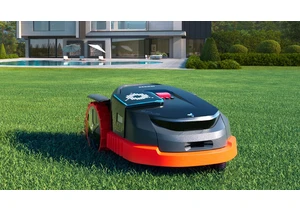At the height of the meal-kit era in 2015, Josh Hix, then CEO of Plated, received a phone call from a health plan representative in North Carolina. As he recounts, the rep said that some of the insurer’s clients with diabetes had recently started using Plated and suddenly brought their condition under control. “It was enough people that it got their attention,” Hix says. The two companies started talking about how they could work together, but it became apparent that working with a health plan was just too complex for a consumer food startup. Still, it got Hix thinking about health. Fast forward to 2022: The meal-kits business is struggling. Despite a pandemic-inspired burst of sales, meal-kit pioneer Blue Apron couldn’t stay profitable. Even Plated, which was acquired by supermarket giant Albertsons in 2017, was temporarily pulled from the market while the grocery chain figured out how to position its pre-packaged meals so they’d sell better. Hix, who left Plated in 2019, says that while meal kits didn’t work out the way he thought they would, he thinks there’s still opportunity in the food space. “The thing what kind of got lost in a lot of the meal-kit media, in my opinion, was there was big churn, but the people that it worked for, it worked really well,” he says. His next act is Season Health, a platform that works with dietitians to develop meal plans, replete with recipes, aimed at helping them manage and hopefully reverse the course of their disease. Once the meal plan is designed, Season coordinates food delivery to patients through its partnerships with grocers. The first two diseases the company is starting with are diabetes and chronic kidney disease—in 2017, diabetes cost the country an estimated $327 billion in health services and lost productivity—but Hix expects to expand to other areas like maternity health, heart health, and cancer. To date, the company has raised $11 million in funding. Season is coordinating meal plans for patients at several health systems: Geisinger, CommonSpirit Health, and kidney-focused telehealth provider Cricket Health. The program is currently available to patients in Arizona, California, Colorado, Michigan, Pennsylvania, Texas, and Virginia, though the company plans to be available nationwide by June this year. To prove that it can improve patient outcomes and make a case for insurance coverage, Season and CommonSpirit are launching a clinical trial. Food as medicine We’ve always known that what we eat is important to overall health, but doctors and researchers increasingly understand that food has a remarkable ability to shape health outcomes. This isn’t just about eating your fruits and vegetables: It’s about eating specific foods to yield specific results. A simple example of this is eating berries, which are richer in antioxidants than other fruits. A small study from 2010 compared the heart function of people eating the same amounts of fruits and vegetables, but with differing degrees of antioxidants. Those with an antioxidant-rich diet saw improved function in the cells that line the heart and blood vessels, lowering their risk of heart disease. What scientists have learned is that antioxidant rich diets are good for heart health, but the antioxidants must come from food. Supplements don’t have the same benefits as eating foods rich with antioxidants. [Photo: Season Health]Geisinger, a health system based in Pennsylvania, understands the impact of nutrition on patient health intimately. “We had best-in-class programs, we had medication therapy management pharmacists that were doing really robust diabetes management,” says Allison Hess, VP of health services at Geisinger. Despite that, there was a segment of their population that was not improving and was actually getting worse. Initially, Geisinger partnered with food banks to connect some of its patients with better food resources, but found that the food banks’ missions were at odds with its goals. “Their mission is feeding bellies, and that’s often with high calorie options, non-healthy options,” she said. “It was too much of a transition for them to think they might have to turn away cans of Chef Boyardee and substitute that with a can of peas.” It’s like punching the tumor in the face while you pull the rug out from underneath it.”There were other logistical complications. For instance, a food bank can only support patients within the ZIP codes it serves. So in 2016, Geisinger launched its own food pharmacy where it could guide patients on how to grocery shop better. “We have everything, we have proteins, lean meats, whole grains, fresh fruits, frozen vegetables—you name it we have it,” Hess says. The diabetes program gave patients ten meals worth of food for their entire family every week. And then the results came in. Diabetes patients that went to Geisinger’s Fresh Food Pharmacy saw average hemoglobin A1C reductions between 2.1 and 2.5 percentage points—better than reductions from medicines, says Hess. People in the program also tended to take care of their other conditions more regularly and were more likely to stay out of the emergency room. Since launch, 1,388 patients have been enrolled in the food pharmacy program. “We know the model works, the challenge is how do we scale it?” says Hess. “Because that model will only really support individuals within a 25-to-35-mile radius realistically.” Now Geisinger is linking up with Season to reach more people in Pennsylvania. Season is not the only player using nutrition to coax better health outcomes. Virta Health, launched in 2014, also prescribes food plans to patients to reverse diabetes. Doctors in other fields of medicine are thinking more about nutrition too. Cancer researchers in particular see an opportunity for food to play a profound role in supporting cancer patients. Faeth Therapeutics, which recently closed a $20 million funding round, is using precision nutrition to starve tumors, with the goal of stopping cancer metastasis. Take, for example, colorectal cancer, which thrives on certain amino acids. “We are taking away very specific amino acids, because the tumor has a reliance on those amino acids, not only to grow, but also to defend itself from chemotherapy,” says Faeth, founder and CEO Anand Parikh. “It’s like punching the tumor in the face while you pull the rug out from underneath it.” Like Season, Faeth is also putting its nutrition plans through clinical trials (in tandem with medication) in order to prove that food can drive health impacts. The goal is to have insurers pick up patients’ grocery tabs, or at least part of them. In this way, these so-called food pharmacies may succeed where meal kits failed. Patients will have two motivations to stick with the plan: their health and a discount on groceries. “Designing food that tastes good, that is culturally relevant because people eat differently and that helps serve the needs of their entire household or whoever they’re eating with, is a lot of what made Plated successful in health outcomes,” Hix says. “Can we get people to stick to those interventions? We think yes, but that’s on us to go prove.”
Autentifică-te pentru a adăuga comentarii
Alte posturi din acest grup

Over the past 17 years or so, I have happily paid for hundreds of e-books—everything from reference works to history to novels to comics. Having immediate access to all of them on a device that fi


Japan on Wednesday linked more than 200

Skeptics scoffed in 2002 when Roomba introduced the robot vacuum to homeowners. That didn’t last very long as the little round device quickly became a fixture in millions of households. Now the la

In November 2024, a left-leaning cohort of social users ran to Bluesky. The movement made the platform a liberal haven—and more popular than far-right alternative Truth Social.
Acc

The no-buy trend isn’t anything new, but it gains fresh momentum

Lyft and Delta are ending their points-earning loyalty partnership in April and the airline will start a new program with rideshare competitor Uber.
Uber announced the multi-year strateg
